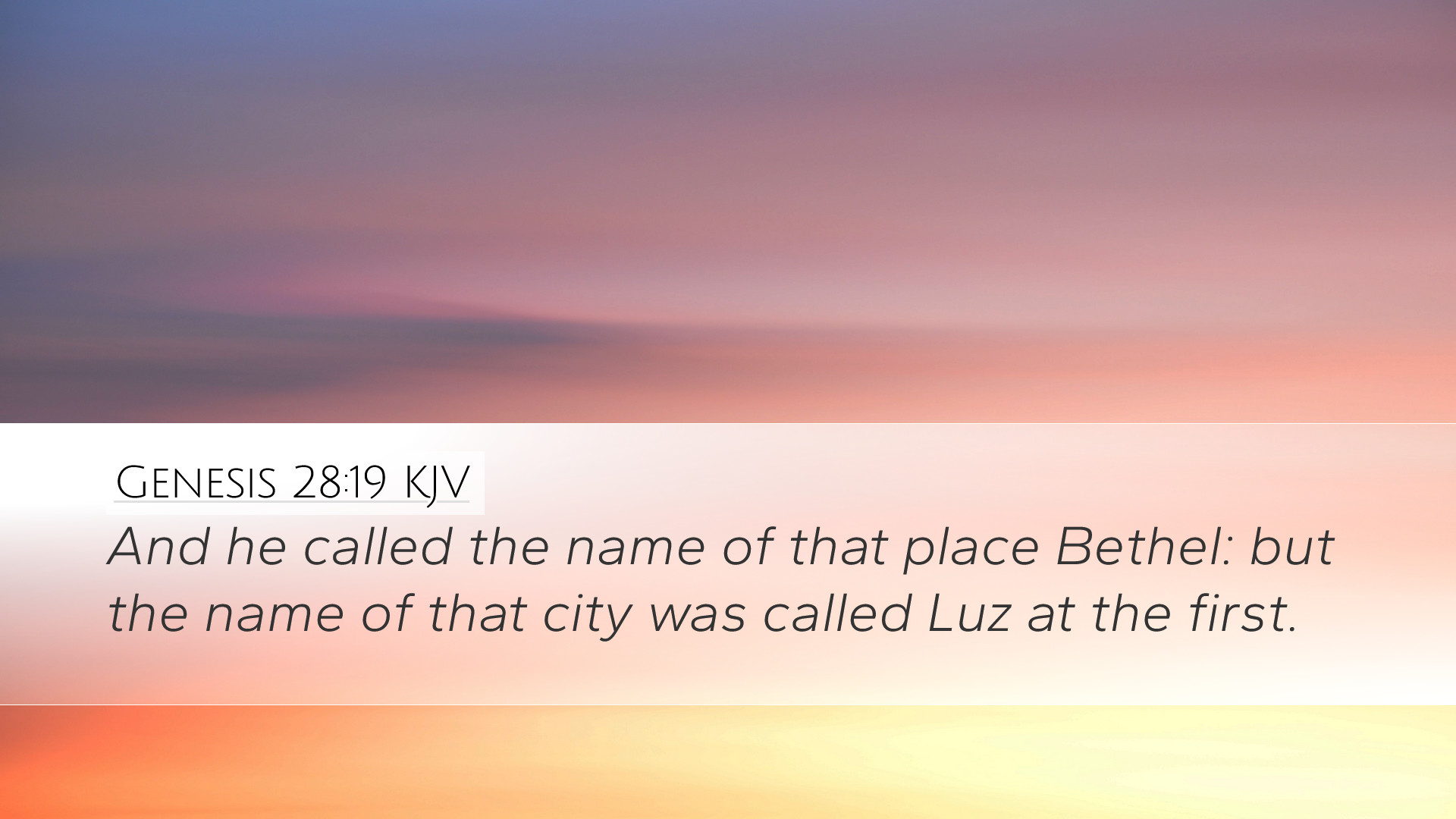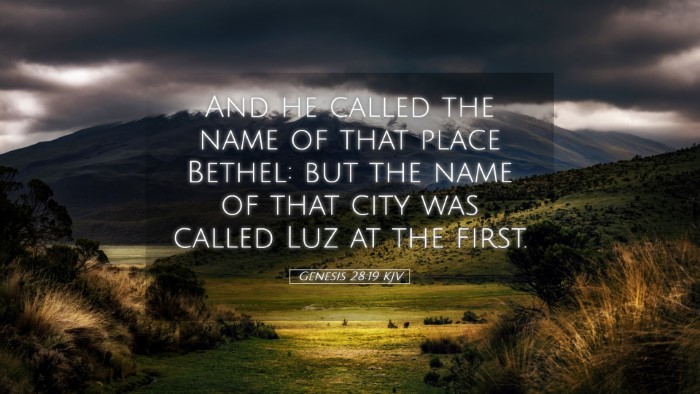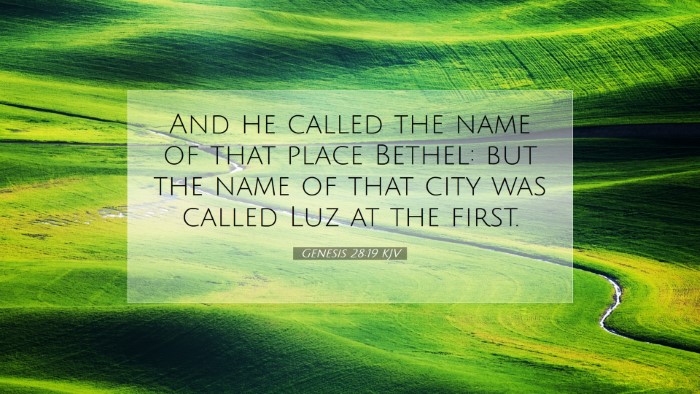Commentary on Genesis 28:19
Genesis 28:19 states:
"And he called the name of that place Bethel: but the name of that city was called Luz at the first."
Introduction
This passage describes the pivotal moment when Jacob, the son of Isaac and grandson of Abraham, encounters God in a dream while fleeing from his brother Esau. The naming of the place Bethel signifies a deep spiritual experience and foreshadows the covenant between God and Jacob’s descendants.
Historical Context
Jacob's journey occurs against a backdrop of family strife, primarily his deception of Isaac to gain the blessing intended for Esau. This context adds layers of meaning to the encounter at Bethel, depicting God's grace despite human failings.
Name Significance
- Bethel: The name "Bethel" means "House of God." It signifies a sacred space where divine promises are revealed.
- Luz: Originally named Luz, meaning "almond tree," the renaming reflects a transformation in Jacob's spiritual life—marking his growth from a worldly, scheming individual to a chosen servant of God.
The Divine Encounter
This verse resonates with the theme of God’s presence. Jacob’s dream, while he sleeps on a stone, is emblematic of God's accessibility to those who seek Him, no matter their condition. In the broader narrative of scripture, this places an early emphasis on God meeting humanity in their ordinary circumstances.
Theological Implications
Matthew Henry emphasizes that Jacob's naming of the place Bethel is an acknowledgment of the significance of his encounter with God. It illustrates the principle that one finds holiness not only in temples but anywhere God reveals His presence.
Albert Barnes notes that this moment serves as a marker for future generations. Naming the place Bethel becomes a pivotal teaching point for Israel regarding their relationship with God and their heritage.
God’s Covenant
In subsequent chapters, the covenantal promise given at Bethel forms a cornerstone for understanding God’s relationship with Israel. Clarke illustrates that this moment leads to Jacob being not just a patriarch, but a conduit of blessings that reach down through generations.
The Journey of Transformation
Jacob’s narrative is one of profound transformation. This passage marks the beginning of a journey wherein Jacob learns to depend on God's promises rather than his own cunning. Thus, Bethel serves as a reminder of the believer's journey towards spiritual maturity and reliance on divine help.
Practical Applications
- Recognizing Holy Spaces: Like Jacob, believers are encouraged to recognize and create 'Bethels' in their lives—places where they can encounter God’s presence and truth.
- Transformation through Encounter: The encounter at Bethel exemplifies how genuine encounters with God can radically alter one's identity and purpose.
- Historical Perspective: Understanding biblical places and names invites deeper study into the continuity of God’s promises throughout history, urging today’s readers to consider their own place in the narrative of faith.
Conclusion
Genesis 28:19 is layered with meaning that is vital for pastors, theologians, and students alike. The significance of renaming Luz to Bethel emphasizes the importance of recognizing God's intervention in our lives and the transformative power of an encounter with the divine.
As believers reflect on this passage, they are encouraged to see themselves in Jacob’s journey—vessels of struggle and redemption, called to recognize and testify to the places in their lives where God has revealed His presence.


